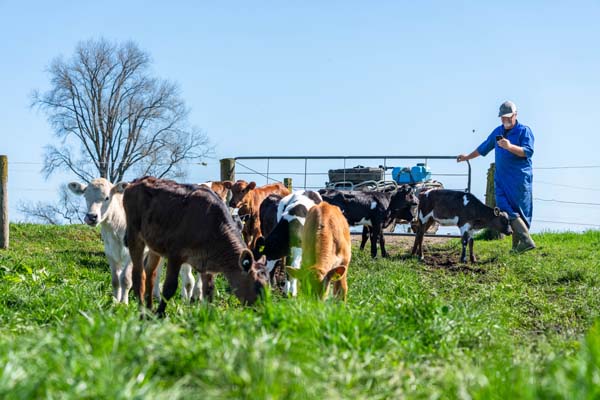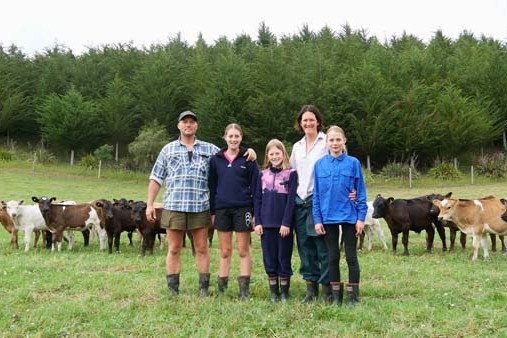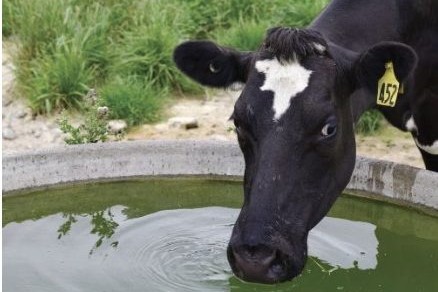BY: JO GRIGG
Put any type of sheep in front of shearer Angus Moore and he won’t be fazed.
The 35-year-old Marlborough shearer and shearing contractor talks more like a sheep breeder, with an appreciation of wool genetics and sheep structure, that shows his farming genealogy. His technique of elegantly removing a fleece; fine wool, second shear or strong wool, up against the clock, was shown to be the best in New Zealand. Moore won the prestigious Multi Breeds Shearing section of the PGG Wrightson Wool National Shearing Circuit, held at the 2020 Golden Shears event.
Moore has won the right to represent NZ at the Trans-Tasman Shearing Competition. He also has the use of a Hyundai Santa Fe for a year. One of the first jobs for the seven-seater after the Covid Pandemic lockdown will be delivering two of Angus and Ratapu’s six children to Seddon School. The couple welcomed another baby in May. Despite a busy family life and a shearing run from the Clarence River to the Marlborough Sounds, and St Arnaud, Angus accumulated enough points through the Summer Show circuit to qualify for the final at Golden Shears.
“I couldn’t make all five qualifiers so aimed to qualify by shearing Merino wethers at Alexandra, Corriedales at the Christchurch Show, and second-shear Romneys at Pahiatua.”
Moore made it through to the semi-final as number ten of twelve shearers. Here they shore three sheep of each type, in a very technical competition.
“It was a really great event, shearing in front of four thousand people plus thousands watching online.”
“I tried to shear the three Merinos and three Corriedales well, using my experience there, as we are used to shearing more fine and mid-micron sheep in Marlborough, compared to crossbreds, especially second-shear in other parts of the country.”
“Other boys were probably faster than me.”
Moore also won the competition in 2012. From Marlborough farming stock, Angus built up shearing skills at home then around NZ on the job. Hugely humble, he credits his success to support from his wife and particular help from competition shearers Sam and Emily Welch, Dion Morrell, Chris Jones and Paul Paikea, his wife’s uncle.
“There are so many people whom I have learnt from.”
The Moores’ shearing gang is a family affair and very supportive.
“My brother-in-law is one of our main shearers in our gang and is awesome, and two of Ratapu’s sisters continue to help when they can.
“The whole gang gets along very well, and is always keen to do a good job for us and our farmers.
“Competitions give me something more to aim at in terms of professional development, to be better than I was yesterday.
“It puts you among people who are really passionate about wool and the industry.”
Angus and Ratapu bought their first run from Joe Douglas in 2016, then added another a year later. About 15% of the run are Merinos, 60% Corriedales or halfbreds and 25% stronger wool sheep.
He said he is very blessed with the farmers he shears for.
“They are keen to work together and take pride in what they do with their wool.”
He closely follows the changes in the genetics of flocks and will be interested to see how the trend to reduce micron plays out. He rates the Saxon-based Isolation merino flock of Rob and Sally Peter, Marlborough, as something really special, with their clip weights and style. Their composites produce a fat lamb, so they have both ends of the spectrum covered.
He has noticed some mid-micron flocks moving about two microns finer and is interested to see how the breeders of mid-micron will improve their genetics.
“A challenge is getting the trend of the Romney/Merino cross right, as there is a high potential of colour in the fleece.”




